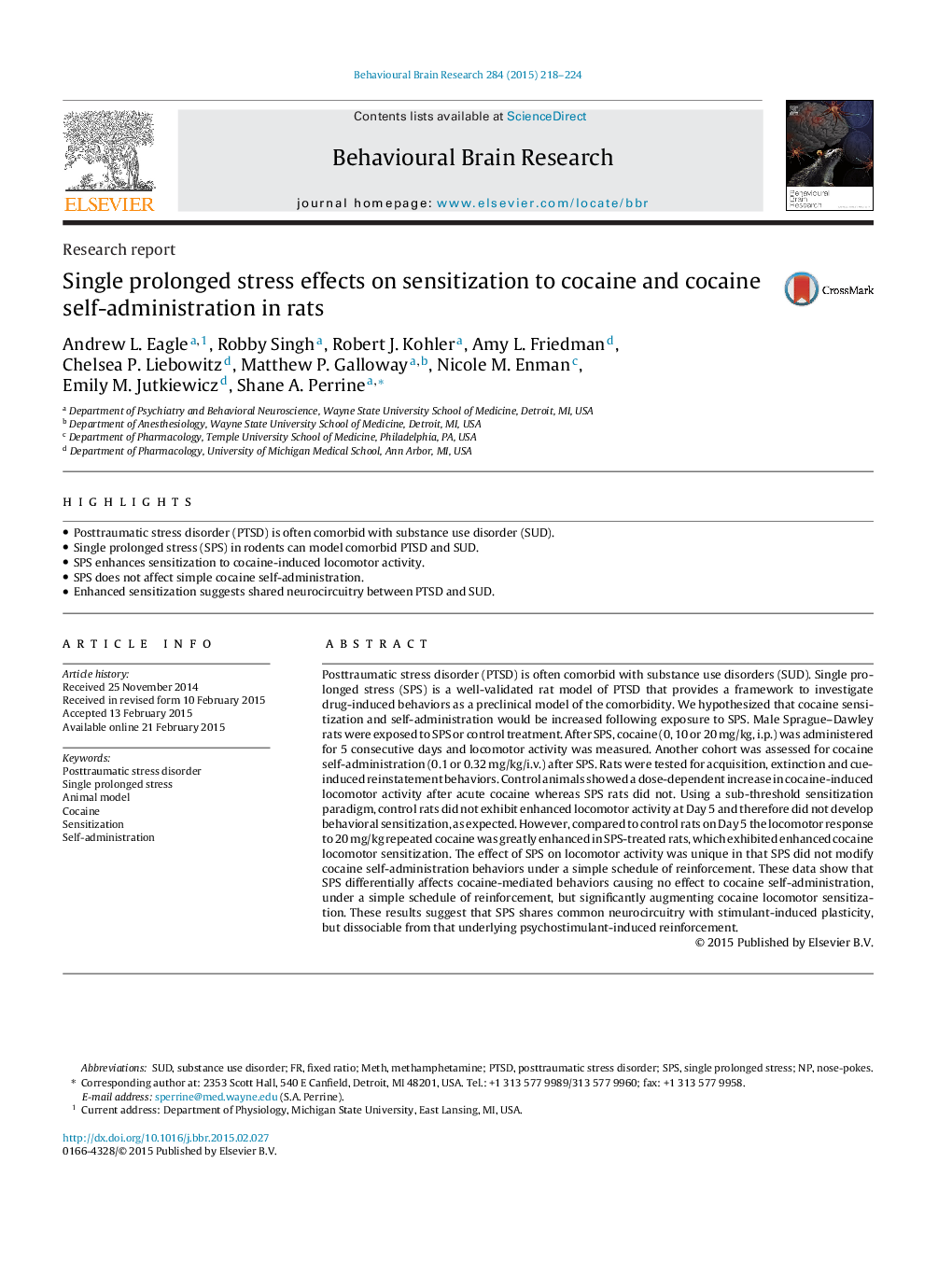| کد مقاله | کد نشریه | سال انتشار | مقاله انگلیسی | نسخه تمام متن |
|---|---|---|---|---|
| 6256804 | 1612948 | 2015 | 7 صفحه PDF | دانلود رایگان |
- Posttraumatic stress disorder (PTSD) is often comorbid with substance use disorder (SUD).
- Single prolonged stress (SPS) in rodents can model comorbid PTSD and SUD.
- SPS enhances sensitization to cocaine-induced locomotor activity.
- SPS does not affect simple cocaine self-administration.
- Enhanced sensitization suggests shared neurocircuitry between PTSD and SUD.
Posttraumatic stress disorder (PTSD) is often comorbid with substance use disorders (SUD). Single prolonged stress (SPS) is a well-validated rat model of PTSD that provides a framework to investigate drug-induced behaviors as a preclinical model of the comorbidity. We hypothesized that cocaine sensitization and self-administration would be increased following exposure to SPS. Male Sprague-Dawley rats were exposed to SPS or control treatment. After SPS, cocaine (0, 10 or 20Â mg/kg, i.p.) was administered for 5 consecutive days and locomotor activity was measured. Another cohort was assessed for cocaine self-administration (0.1 or 0.32Â mg/kg/i.v.) after SPS. Rats were tested for acquisition, extinction and cue-induced reinstatement behaviors. Control animals showed a dose-dependent increase in cocaine-induced locomotor activity after acute cocaine whereas SPS rats did not. Using a sub-threshold sensitization paradigm, control rats did not exhibit enhanced locomotor activity at Day 5 and therefore did not develop behavioral sensitization, as expected. However, compared to control rats on Day 5 the locomotor response to 20Â mg/kg repeated cocaine was greatly enhanced in SPS-treated rats, which exhibited enhanced cocaine locomotor sensitization. The effect of SPS on locomotor activity was unique in that SPS did not modify cocaine self-administration behaviors under a simple schedule of reinforcement. These data show that SPS differentially affects cocaine-mediated behaviors causing no effect to cocaine self-administration, under a simple schedule of reinforcement, but significantly augmenting cocaine locomotor sensitization. These results suggest that SPS shares common neurocircuitry with stimulant-induced plasticity, but dissociable from that underlying psychostimulant-induced reinforcement.
Journal: Behavioural Brain Research - Volume 284, 1 May 2015, Pages 218-224
